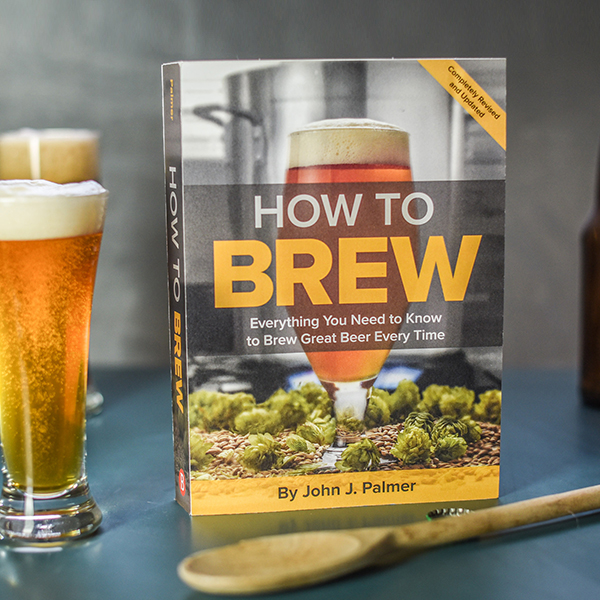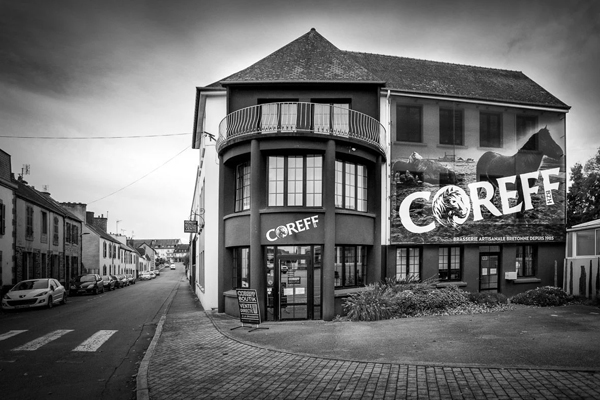[ad_1]
When opening their second brewery within the French Alps in early 2024, Lee and Emily Cleghorn, co-founders of the Colorado-based brewery Outer Vary, had been afraid of being shut out.
“The U.S. beer scene is so collaborative and we didn’t need to lose that,” they stated. “We realized that it was working precisely the identical in France and folks have been serving to us, recommending tools and methods.”

In another country greater than 5,000 miles from their residence, the couple discovered the very same spirit of camaraderie they had been used to. This obvious friendliness is a defining trait of the craft beer trade, the place any brewer experiencing an issue is usually one name away from a colleague lending them a lacking piece of kit, sharing a brewing tip, or opening their brewhouse for a fast go to.
Beer journalist Kate Bernot believes this comes from craft brewers by no means concerning one another as enemies. “They’ve all the time been on this collectively, in opposition to the massive brewers at first, however now I see a type of mutual respect between any brewer, massive or small.”
Beer is its personal world, she says, and regardless of the market rising and getting harder, Bernot is amazed to see these values stay within the U.S. and past.
During the last twenty years, the uscraft beer scene has made its identification a typical for the entire trade to duplicate, placing its distinctive types all over the place it may well, coaching brewers internationally, and setting tendencies. For rising scenes such because the one in France, it’s now all about discovering a stability between that widespread shared expertise and setting its personal path.
A Collective (American) Data
Brewers usually are not mechanically nicer and fewer aggressive folks than winemakers or anybody working in drinks. Nevertheless it’s fairly apparent that they’re extra open to sharing ideas—an much more putting distinction in a rustic with a powerful wine heritage like France.
“Brewers all use the identical components; they’re method much less territorial than winemakers within the Napa Valley or in Champagne who actually rely upon land and geography, on appellations which are protected and invaluable,” Bernot says. “There’s a way of confidence from brewers that the best way they do one thing is theirs, so you may have the recipe nevertheless it nonetheless received’t be one hundred pc the identical.”
One more reason for this openness might be discovered within the pastime that helped launch the craft revolution within the States: homebrewing. “It’s the inspiration from which this entire trade comes from, the spirit of doing issues collectively and never being cut-throat cash makers,” says Bernot.
Laurent Mousson, a Swiss beer decide, educator, and former vice chairman of the European Beer Customers’ Union, noticed the identical factor occurring in Europe. “The primary French-speaking microbrewers had been initially homebrewers sharing their expertise on the web,” he says, recalling an vital newsgroup devoted to beer and brewing from the mid-Nineteen Nineties.
Following its observe, the BrassageAmateur’s discussion board created in 2003 helped launch many French microbreweries similar to Hoppy Highway, based in 2017 in Nancy, northeastern France. Julien Pécheur, its co-founder, joined the discussion board in 2012 and made a reputation for himself by profitable the Paris Beer Pageant homebrewing competitors in 2015.

A pipeline for a lot of skilled brewers, homebrewing got here with its widespread references, similar to Tips on how to Brew by John Palmer, which Pécheur cites as his first brewing handbook. “It’s been each brewer’s bible for a very long time.”
Some nations like Germany had been a bit extra lucky to have technical books in their very own language, Mousson says, however probably the most up-to-date sources have largely been revealed in English.
“In 2000, once you had been on the lookout for data, the one homebrewing handbook in French was from Québec, which was itself influenced by the U.S.,” he says, referencing Jean-François Simard’s handbook Remark faire de la bonne bière chez soi (Tips on how to brew good beer at residence).
Even immediately, books similar to Wooden & Beer, The New IPA, or Wild Brews are shared references for a lot of French-speaking brewers, with no actual equal of their native language. And in relation to classifying and defining beer types, the Beer Choose Certification Program (BJCP) continues to be seen as probably the most reliable supply for brewers internationally.
Mousson believes this tradition of schooling influenced the best way individuals are brewing in Europe and past, and is a part of the explanation why American beer types have had a monopoly on craft for the final 15 years or so.
On a visit to Chile, Bernot says she was shocked to seek out hazy IPAs on faucet in brewpubs she visited. “I anticipated to see largely German affect—how did this get right here?” she says, laughing. “It’s wonderful to me how far the U.S. beer affect has traveled.”
Beer exports performed a key function in spreading new types and growing microbreweries overseas, a sport during which the ushas all the time been the perfect, in accordance with Bernot. “It’s not simply with beer, it’s the best way the U.S. exports all the pieces” she says. “There’s rather a lot to say about cultural imperialism. We’re obsessive about placing our merchandise all over the place.”
If France was a bit late when it got here to importing U.S. craft beer, in comparison with different European nations such because the Netherlands who began doing it within the Nineteen Nineties, it’s as a result of importers have lengthy underestimated French shoppers’ tastes, Mousson says. “They thought that French folks wouldn’t be into the bitterness of IPAs since they appreciated the sweetness of Belgian beers.”
However the craze for American beer types is exactly a metaphor for all the pieces that’s outdoors what’s acquainted. “We’ve been caught with conventional beer types for thus lengthy and found what was occurring elsewhere by way of IPAs, our gateway into craft beer,” Pécheur says. “Individuals actually got down to revive and excellent IPAs, so for us it was the simplest model to entry when beginning out.”
Towards New Interpretations
Even when the usinfluence helped prepare new generations of microbrewers and applied a type of shared identification within the trade, Mousson says that it could be improper to imagine all of the credit score goes to 1 nation.
“Behind this concept, there’s a presupposition that there was nothing earlier than the U.S. craft revolution reached us, and that stinks,” he says. “A obtrusive instance is in Denmark, the place a type of revisionism states that earlier than Mikkeller was based there was nothing attention-grabbing, which couldn’t be extra false.”
He cites Carlberg’s vary supposed for gastronomy, Semper Ardens, in 1999 or the family-owned brewery Thisted who brewed bog-myrtle Pils and licorice-smoked Baltic porter within the Nineteen Nineties. “Brewers have all the time been progressive; they’ve all the time appeared for one thing completely different,” Mousson says.

Relating to France, microbrewers had been first trying throughout the channel reasonably than the Atlantic Ocean. The founders of the primary French craft brewery, Brasserie Coreff, in 1985, had been skilled by Ringwood Brewery’s well-known founder, Peter Austin, and selected to make use of the distinctive Ringwood Ale yeast at a time when the tradition was all about tasteless mass lagers.
Individuals themselves lengthy admired Belgian and English beer types earlier than they took IPA and made it their very own factor, setting a worldwide commonplace. Mousson thinks they created a standardized American style in craft, citing Sierra Nevada and its Chico pressure of yeast as a sport changer. “Subtlety is just not the robust level of the U.S. beer scene, however that’s precisely what made it stand out and left a mark on folks’s minds,” he says.
Keen to seek out one thing of their very own, brewers in France are actually trying to find their standardized French style. Mousson believes that discovering your method into craft isn’t by creating new native types, however that all of it comes all the way down to interpretation.
“It’s the best way it’s all the time been performed. Denmark was into Belgian beers however made them extra dry and bitter as a result of it had a love for Pilsner,” he says. “The Britishs exported their porters past the Baltic Sea and brewers there interpreted it to their style to create Baltic porters.”
Pécheur agrees. “We are able to’t compete with a mode that comes from a particular place; what we are able to do is give it one other dimension,” he says. “We don’t know how one can brew a standard gose in addition to they do it in Leipzig, so we give it a contemporary twist, add fruits, or make it barrel aged.”
Relating to constructing your personal identification in craft, Bernot says endurance is the important thing. “If you happen to got down to make a mode and say ‘that’s our nation’s beer’ it feels sort of pressured reasonably than letting that come naturally,” she says. “Constructing a tradition of something takes time. You don’t simply declare one thing; it’s a ready sport.”
CraftBeer.com is absolutely devoted to small and impartial U.S. breweries. We’re revealed by the Brewers Affiliation, the not-for-profit commerce group devoted to selling and defending America’s small and impartial craft brewers. Tales and opinions shared on CraftBeer.com don’t suggest endorsement by or positions taken by the Brewers Affiliation or its members.
[ad_2]



